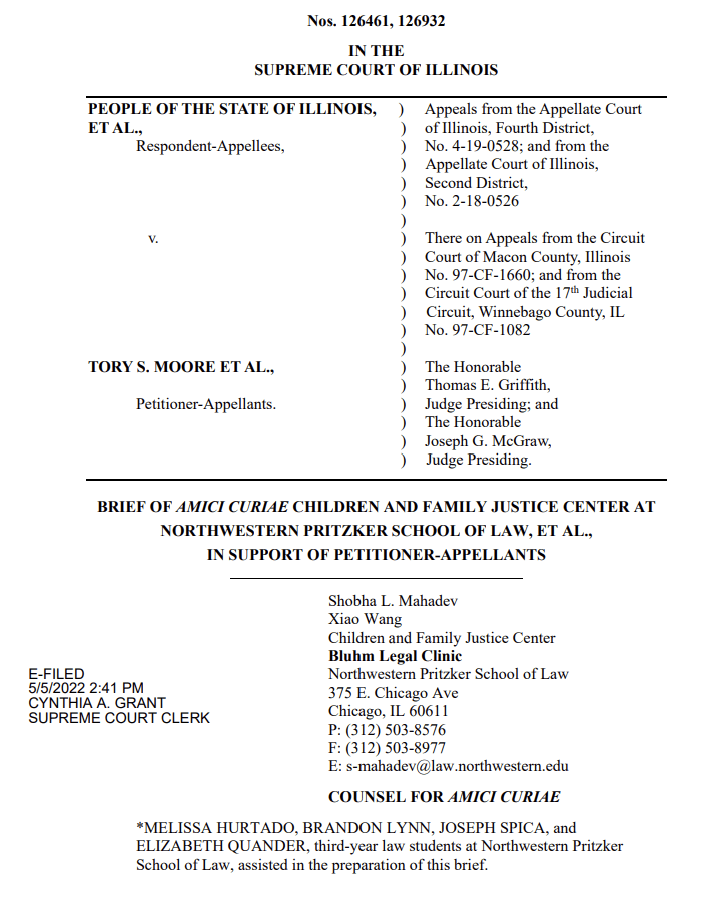
Summary of Argument
In People v. Harris, this Court held that youthful offenders over 18 at the time of their offenses could challenge the constitutionality of their sentences under Miller and the Illinois Constitution. Harris, 2018 IL 121932; Ill. Const. 1970, art. 1, § 11; see also People v. House, 2021 IL 125124 (remanding for further post-conviction proceedings to develop record in as-applied Illinois proportionality challenge based on Harris). Yet Harris has been applied inconsistently, with courts failing to clarify what an emerging adult must plead to obtain leave to file a successive post-conviction petition. Petitioners in the instant cases, both of whom were barely 19 years old at the time of the respective offenses which led to their convictions and natural life sentences, were denied leave to file a successive petition. Both argue that, as applied to them, their sentences violate the Eighth Amendment of the U.S. Constitution and the Proportionate Penalties Clause of the Illinois Constitution. At a minimum, they should be permitted to file a successive petition before the circuit court so that they might be able to develop a record sufficient to support their arguments. This Court should permit the Petitioners leave to file and establish that the threshold for pleading a motion to file such a petition should not be particularly onerous.
Historically, courts struggled with how to treat emerging adults in criminal and non-criminal contexts, underscoring that there is no bright line for when a young person should be treated as an adult under the law, especially in light of evolving social and scientific understanding regarding young adults. While the U.S. Supreme Court in its Eighth Amendment jurisprudence has adopted demarcation at the age of 18 (see, e.g., Miller v. Alabama, 567 U.S. 460 (2012) (banning mandatory life-without-parole sentences for youth under the age of 18 and requiring consideration of youth-centered factors in sentencing decisions)), modern neurological research shows that brain development continues well into a person’s 20s. Equipped with this understanding, the Illinois Supreme Court and General Assembly have gone even further than Miller, considering developmental psychology, neurology, and sociology to more equitably reflect recent research in the law. That accords with the actions of other state courts and legislatures around the country, which have extended protections for emerging adults and youth who commit even serious and violent crimes, partially in response to this modern understanding. The concern courts have expressed for emerging adults should be even more salient for emerging adults who are also part of vulnerable populations such as those with intellectual defects and disabilities, and those without access to attorneys or experts. With no clear guidance, these vulnerable parties, particularly those who are incarcerated, will find it even harder to develop a record at the leave-to-file stage. In other words, if the threshold at the initial stage is insurmountably high, incarcerated pro se litigants—by definition, lacking resources and possibly having intellectual deficits—will be denied access to justice when they otherwise could have put forth a successful post-conviction claim. This Court should provide relief in these cases and ensure that post-conviction petitioners at a leave-to-file stage are provided an opportunity to demonstrate the merits of their constitutional claims.